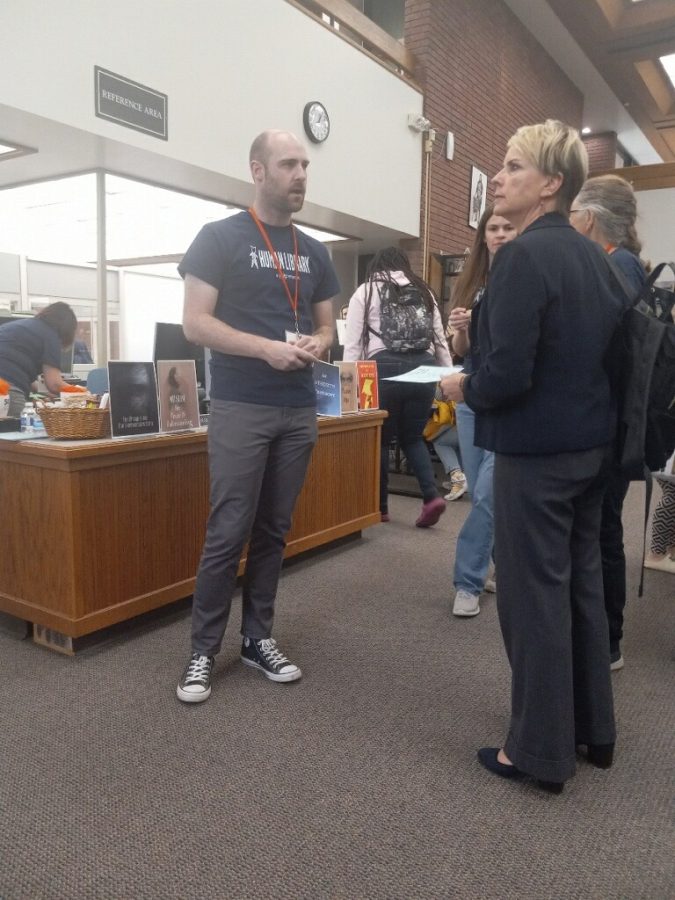Human Library encourages students to ‘unjudge someone’
The Human Library Organization visited the campus on May 3 in the library to share stories with students. Organizers of the event discussing the check out schedule for the books.
The campus hosted the Human Library on May 3 in the library, becoming one of the many publishing partners of the 23-year-old organization.
The Human Library Organization is a non-profit organization created to bring attention and understanding to groups of people who have experienced discrimination and stereotyping, according to the organization’s website.
“There was a major study that was done on the Human Library that I read about how the Human Library helped with people understanding their own biases,” said English Professor Dr. Lesley Gale, who was the coordinator of the event.
The “books” in the library are people who volunteered to tell their life story and they choose their own title for their book. The attendees are the “readers” by listening to the books talk and are able to “check out” the books to hear their stories and ask questions.
The Human Library is designed to create an open dialogue between the books and the readers, encouraging the readers to ask questions and unjudge someone, according to the HLO website.
One of the books in the library was titled “Formerly Homeless Student,” a recent law school graduate named Stephanie Yim who spent a portion of her college years homeless. Yim said she didn’t have access to a formal housing program and relied on campus facilities to take care of herself.
“If I stopped going to campus, I’d stop getting financial aid,” Yim said.
Yim said she switched her major from automotive technology to political science so she could help people.
Another book at the event was “Growing Up a Refugee,” a woman named Xuo Sittida who shared her story about how she spent much of her childhood as a refugee after the Vietnam War.
“I chose to do it because I don’t think it’s a bad thing to grow up a refugee,” Sittida said.
Sittida came to America as a teenager in 1996 after her family was sponsored by her grandmother. Sittida said one of the hardest things was learning English as her fourth language.
“I thought it would be really interesting to hear other people’s life experiences and try and see if I had any similar events happen to me,” said Kevin Do, a 21-year-old fire technology major.
Do said he chose to listen to “Growing Up a Refugee” because he came from a family of refugees.
Twenty-one-year-old psychology major Francisco Hinojosa came with one of his classes and chose to listen to “Previously Homeless Student.”
“You see so many kids at school that you don’t really know what they’re going through and they could be going through the same thing,” Hinojosa said.

